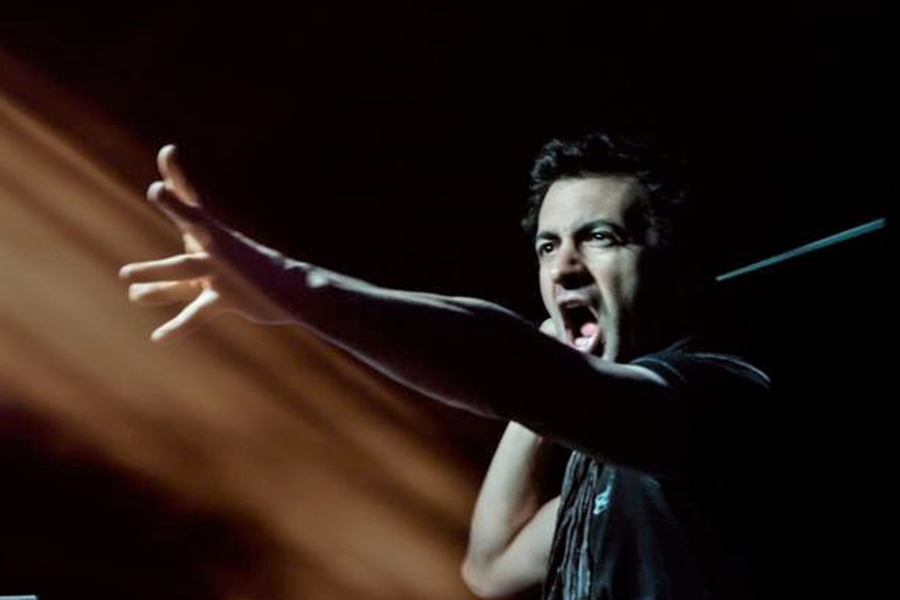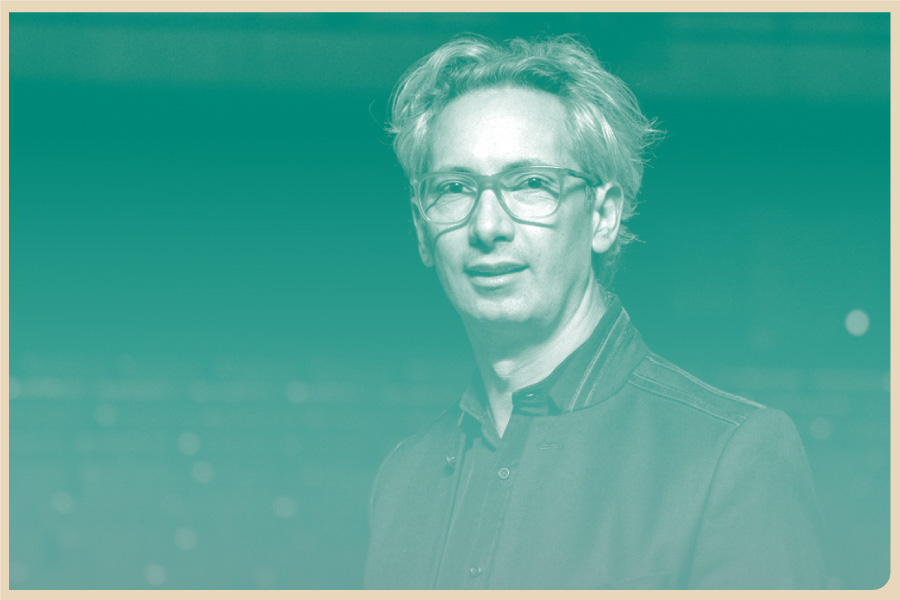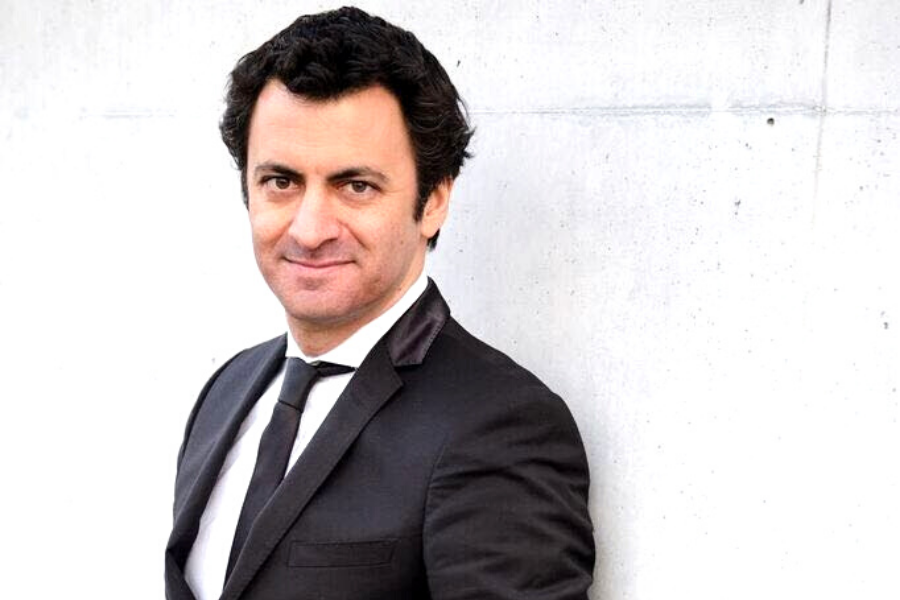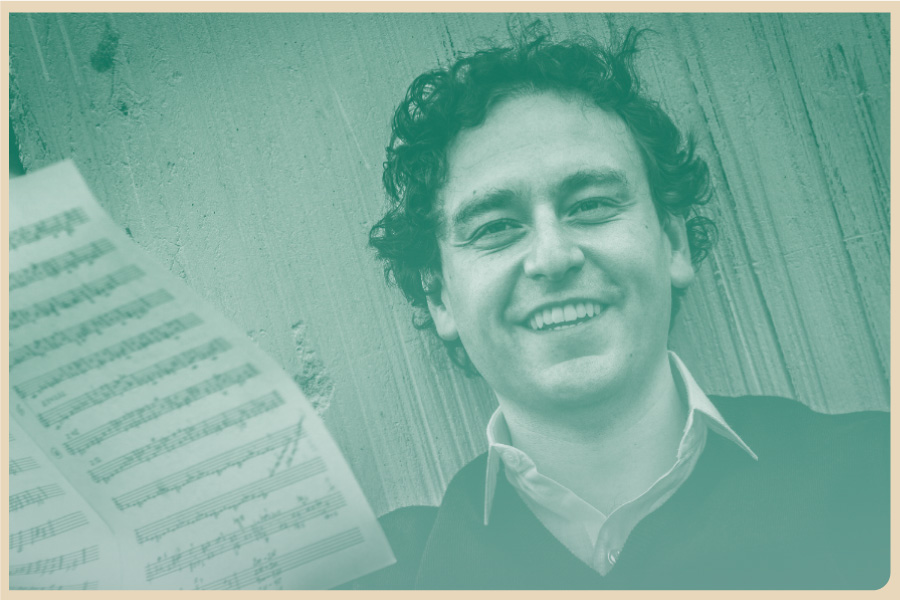El director argentino Alejo Pérez abre la temporada en Ópera de Flandes

Entrevista al director argentino que actualmente se encuentra en Tokio dirigiendo Freischütz. En agosto luego de dirigir un concierto en el Teatro Colón de Buenos Aires, hace la apertura de la Temporada en la Ópera de Flandes con Lohengrin, seguidos de nuevas producciones como Amor por tres naranjas de la Ópera de Stuttgart y De la casa de los muertos de la Ópera de Lyon
.
Luego de formarse como pianista y diplomarse en composición y dirección con medallas de oro en la Pontificia Universidad Católica Argentina, y perfeccionó sus estudios de dirección en Alemania con Peter Eötvös, Helmuth Rilling y Sir Colin Davis.
.
Ha dirigido orquestas y festivales por todo el mundo. Fué director musical del Teatro Argentino de La Plata durante cuatro temporadas (2009-2012). Compuso la ópera Tenebræ por encargo del Centro de Experimentación del Teatro Colón y dirigió su estreno en 1999.
.
Dirige también frecuentemente en Latinoamérica como la Sinfónica Nacional Argentina, Filarmónica de Buenos Aires, Camerata Bariloche, Sinfónica Nacional de Chile, Sinfónica del SODRE Montevideo, Filarmónica de Montevideo, Sinfónica Nacional del Perú, Orquesta Sinfónica de Río de Janeiro. Dirigió para el ciclo de música contemporánea del teatro San Martín algunos estrenos sudamericanos y Buenos Aires Lírica. Además de numerosas actuaciones en el Teatro Colón, incluyendo las últimas producciones locales de Parsifal y Der Rosenkavalier.
.
Comenzó su carrera como pianista, ¿Qué lo llevó a convertirte en Director?
Ser pianista es bastante solitario también, allí no se es parte de un grupo tampoco.
Al dirigir se establece un juego maravilloso de interacciones, en el cual saber escuchar, decir, y guiar es esencial. Ya no es uno quien produce físicamente el sonido, sino que el material sobre el que trabaja son las múltiples capacidades musicales de las personas, y sus voluntades. Dirigir no es solamente mover una batuta, hay que gustar de esta interacción con las personas, en la música.
.
Para un director con su trayectoria internacional, ¿Cuál es el contraste entre dirigir una orquesta en Latinoamérica a hacerlo en Europa o en otra parte del mundo? ¿Es diferente el repertorio o la manera de trabajar?
El repertorio varía menos por continentes que de ciudad a ciudad o de teatro a teatro. Hay teatros y orquestas dentro de un mismo país que llevan adelante muy diferentes políticas culturales y de programación.
Respecto al trabajo de ensayo, ahí sí pueden notarse claramente las idiosincrasias culturales de cada sociedad. Las orquestas latinas (en eso incluyo a las orquestas italianas) suelen apreciar ir trabajando sobre el proceso de estar tocando, sin detenerse tanto y sin tanta paciencia por la concentración en el detalle. Las europeas más nórdicas, lo mismo que las asiáticas, gustan en cambio dedicarle tiempo y atención a la construcción cuidada de la obra, pero para eso también tienen un training y disciplina que les permite reaccionar con mucha rapidez a cambios propuestos. También dentro de europa hay diferencias; con orquestas inglesas o norteamericanas es esencial saber efectivizar al máximo el tiempo disponible.
.
Es reconocido como director y compositor, ¿Con cual de estas labores se identificas más?
Eso es más generoso de su parte que cierto. Mi actividad como compositor casi que pertenece a mis vidas pasadas. En lo que sí modifica enormemente mi experiencia compositiva es leyendo y analizando partituras.
Uno atravesó la vivencia de la distancia que hay entre una idea musical y su transcripción al papel; siempre mi búsqueda es descubrir esa idea primigenia, cualquiera sea el compositor que esté estudiando, entendiendo que la notación es sólo un medio limitado para ello. La idea es siempre más rica.
.
En su opinión, ¿Qué crees que los latinos le podemos enseñar a los europeos, y que pueden ellos enseñarnos? Musicalmente hablando.
Yo descreo fuertemente de la concepción fronteriza del mundo. Me resisto a ello; me gusta pensar que el músico es uno en todas partes.
.
Según ud, ¿Cuál cree que es el actual desafío de las artes escénicas clásicas y cómo se debe lidiar con ello?
El gran desafío es establecer lazos con las generaciones jóvenes. No está necesariamente sobreentendido que una persona joven o adolescente guste de la ópera, o de explorar la literatura, el teatro. Transformarse en parte natural de su paisaje, de sus gustos y hábitos significa velar por el futuro de este mundo fascinante de la ópera, el teatro y la música. Es una ganancia compartida.





